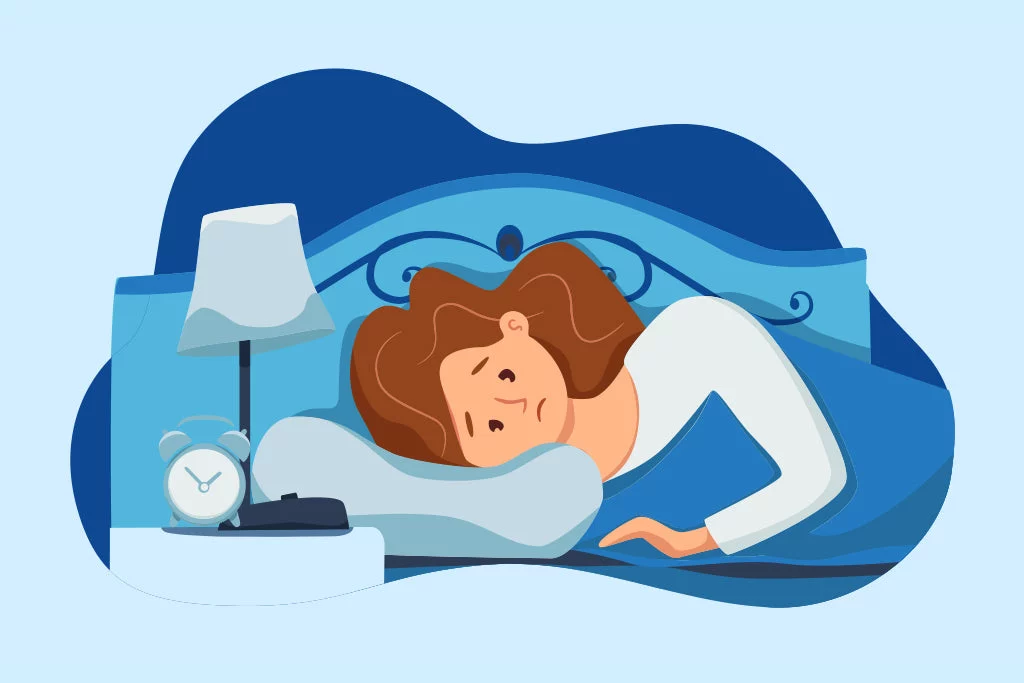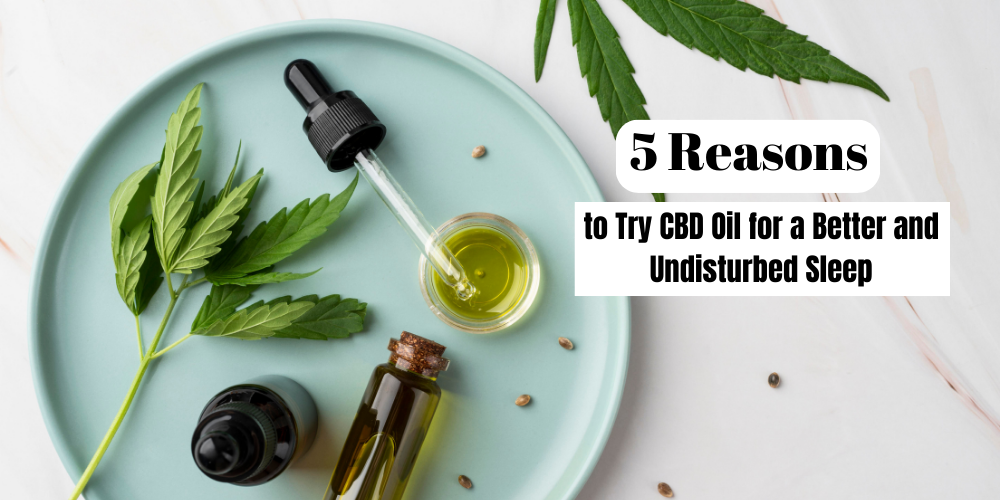Recent decades have seen extensive research on cannabis and insomnia. Insights into the endocannabinoid system, receptors, and various phytocannabinoids have made it possible to arrive at increasingly convincing conclusions about how these substances can help people with insomnia.
INTRODUCTION TO INSOMNIA
Insomnia is difficulty falling or staying asleep. It can be caused by a variety of conditions, such as depression, disease, or cancer. Primary insomnia occurs when you have difficulty getting the sleep you need when you first go to bed. Central insomnia means that you don’t get continuous sleep and are awake numerous times during the night. Terminal insomnia means that your morning awakening is early, even before 6:00 am. The duration of your insomnia also affect its classification, so depending on how long it lasts, it will fall under one of three categories:
An occasional episode of insomnia that lasts a few days and is caused by particular factors, such as illness, anxiety, noise, inadequate ambient temperature, time zone changes, etc.
A transient insomnia occurs when the subject complains of the disturbance for a period of up to three weeks;
When insomnia persists for a long period of time, it is considered chronic insomnia.
Sleep quality and quantity are affected by many factors, some of which are obvious while others less so. Sometimes, a particular factor may be the culprit in triggering insomnia; other times, the disorder is caused by more than one set of circumstances. Sleep mechanisms are sensitive to the influence of various types of psychological strain, including emotional tension, family worries, economic problems that lead to stress and anxiety. Environmental factors have also been linked to specific causes of insomnia; altitude issues or jet lag syndrome are just two examples. When insomnia occurs in a healthy subject who doesn’t have any other underlying medical condition, it is referred to as primary insomnia; when a different set of circumstances or an underlying condition contributes to the sleep disturbance, secondary insomnia is used. In fact, disease states such as liver dysfunction or respiratory problems can cause insomnia as well as depression, neurological or psychiatric conditions.
INSOMNIA AND CANNABIS
The association of therapeutic cannabis with its sedative effect has been known since Pliny the Elder wrote his “Naturalis Historia” and as we discussed in our article “Cannabis in ancient texts”.
CBD, a metabolite of medical cannabis, modulates the serotonin 5-HT receptor to provide antidepressant, anxiolytic, and neuroprotective effects. CBD facilitates sleep by relaxing the body.
It has become increasingly necessary to analyze it through ever more sophisticated studies since 1975, when we recorded the first study on the combination of Cannabis and Insomnia.
From 1975 to the present, we have conducted a series of studies.
STUDIES AND REVIEWS ON CANNABIS AND INSONIA FROM 1975 TO THE PRESENT
The 1975 paper by Feinberg I et al.
Human sleep patterns after high-dose delta-9-tetrahydrocannabinol administration
Human placebo-controlled trial
“THC administration significantly reduced eye movement activity during rapid eye movement (REM) sleep and, to a lesser extent, REM sleep duration.”
An investigation of Feinberg I et al. published in 1976 – Visit
An electroencephalographic study of the effects of marijuana extract and tetrahydrocannabinol on sleep
THC and full spectrum cannabis materials used in human trials
Conclusions “The marijuana extract, administered in daily doses containing 70 to 210 mg of delta-9-tetrahydrocannabinol (THC), induced sleep effects that were practically identical to those induced by the same doses of relatively pure THC (96%). Both drugs reduce the density of eye movements with a certain tolerance that develops in this sense […] The effects of THC administration on sleep are very similar to those induced by lithium”.
A paper by Carlini E. A. and Cunha JM published in 1981 – Visit
Cannabidiol’s hypnotic and antiepileptic properties
A placebo-controlled crossover trial in humans
The subjects that were administered 160 mg of cannabidiol reported more sleep than those who were given a placebo. Volunteers taking the three doses of cannabidiol also had less dream recall than those taking the placebo. Fifteen patients with secondary generalized epilepsy refractory to known antiepileptics received 200 to 300 mg of cannabidiol per day or a placebo for four and a half months. Seven of the eight cases of epilepsy that were successfully treated with cannabidiol improved, while only one case treating with a placebo was successful.
Freemon FR – 1982: Visit
Polygraph-monitored sleep of normal volunteers after chronic administration of delta-9-tetrahydrocannabinol
A placebo-controlled trial in humans
A marked decrease in slow waves in the electroencephalogram, stages 3 and 4 of non-REM sleep, was observed after about a week of THC administration and continued for a week after drug withdrawal. According to this study, prolonged, but non-acute use of this drug suppresses slow-wave sleep, suggesting a poorly understood change in brain physiology.”
This is an article in 1998 by Murillo-Rodriguez E. et al. – Visit
Rats’ sleep and memory are modulated by anandamide
In conclusion, anandamide increases both slow wave sleep and rapid eye movement (REM) sleep at the expense of wakefulness.
2004 Nicholson AN et Al – Visit
The effects of Delta-9-tetrahydrocannabinol and cannabidiol on nocturnal sleep and morning behaviour in young adults
Human double-blind, placebo-controlled 4-way crossover study
Conclusions: “THC appears to have sedative effects. CBD, on the other hand, appears to promote alertness. As a result of the higher dose (15 mg THC with 15 mg CBD), the waking time increased. As a result of the lower doses (5 mg THC and 5 mg CBD), there were no mood changes, sleepiness, tiredness, or performance the following day. The combination of higher doses (15 mg THC and 15 mg CBD) resulted in increased sleepiness, tiredness, and mood changes.”
Swift W, Gates P, Dillon P – 2005: Visit
Cannabis use for medical purposes among Australians
128 patients treated with cannabinoids were surveyed
The researchers concluded that cannabis was perceived as a ‘great relief’ in general, including arthritis pain, depression, chronic pain, persistent nausea, and insomnia, as well as being superior in terms of side effects and extent of relief.
2013 It includes Gorelick DA et al. Visit
The effects of oral THC on sleep in chronic cannabis smokers (males) (24 of 24)
13 young men participated in a human trial
THC and 11-OH-THC (active metabolite) concentrations in the evening were significantly associated with shorter sleep latency, less difficulty falling asleep, and more sleep the following day.
2014 – Murillo-Rodrguez E et al : Visit
Arousal-promoting effects of cannabidiol
In this review, we examine the pharmacological evidence for CBD’s effects on sleep modulation and provide a putative mechanism of action. It may be plausible to explore its medical properties in sleepiness. Further investigation of this topic is needed to understand how CBD regulates sleep through molecular and neuroanatomical pathways.”
The Gruber SA et al. case from 2016 – visit
Medical marijuana and executive function: a pilot study
The results of a survey of 11 medical cannabis patients
The results, at least for now, suggest that those who have been treated with MMJ (medical marijuana) see improvements in cognitive performance. The Stroop Color Word Test and the Tracking Test show many patients are improving their speed without a decrease in accuracy. Self-report questionnaires suggest that MMJ has improved clinical status as well. Statistics show a decrease in sleep disturbances, depression symptoms, and impulsivity. Plus there’s an increase in quality of life, too. All this is worthy of further investigation using more time points and a larger sample size – but for now this is promising!
The Shannon S, Opila-Lehman J paper from 2016 – visit
An evaluation of cannabidiol oil’s effectiveness in treating paediatric anxiety and insomnia associated with post-traumatic stress disorder
Study of a pediatric patient suffering from PTSD after a sexual assault
In this case study, cannabidiol oil was shown to reduce anxiety and improve sleep in a girl with post-traumatic stress disorder.
The 2017 Keith DR et al. Report – Visit
During a simulated night shift, marijuana smoke dulls performance and affects mood
Human placebo-controlled trial of ten experienced marijuana smokers
The Piper BJ et al. – 2017 – Visit
Pain, anxiety, and sleep disorders can be treated with medical cannabis instead of pharmaceutical agents
1513 members of New England dispensaries were surveyed
“Approximately two-thirds of patients reduced their use of anti-anxiety medications (71.8%), migraine medications (66.7%), and sleep medications (65.2%) after using medical cannabis. After starting medical cannabis, the majority “used fewer opioids and fewer medications to treat anxiety, migraines, and sleep.” A smaller percentage used fewer antidepressants and alcohol.
CONCLUSION
The results of these studies need to be interpreted with caution, and randomised controlled trials are still needed to provide definitive clinical recommendations. Cannabis has been shown to be safe as a form of treatment to date, with no reported cases of cannabinoid overdose or complications.



